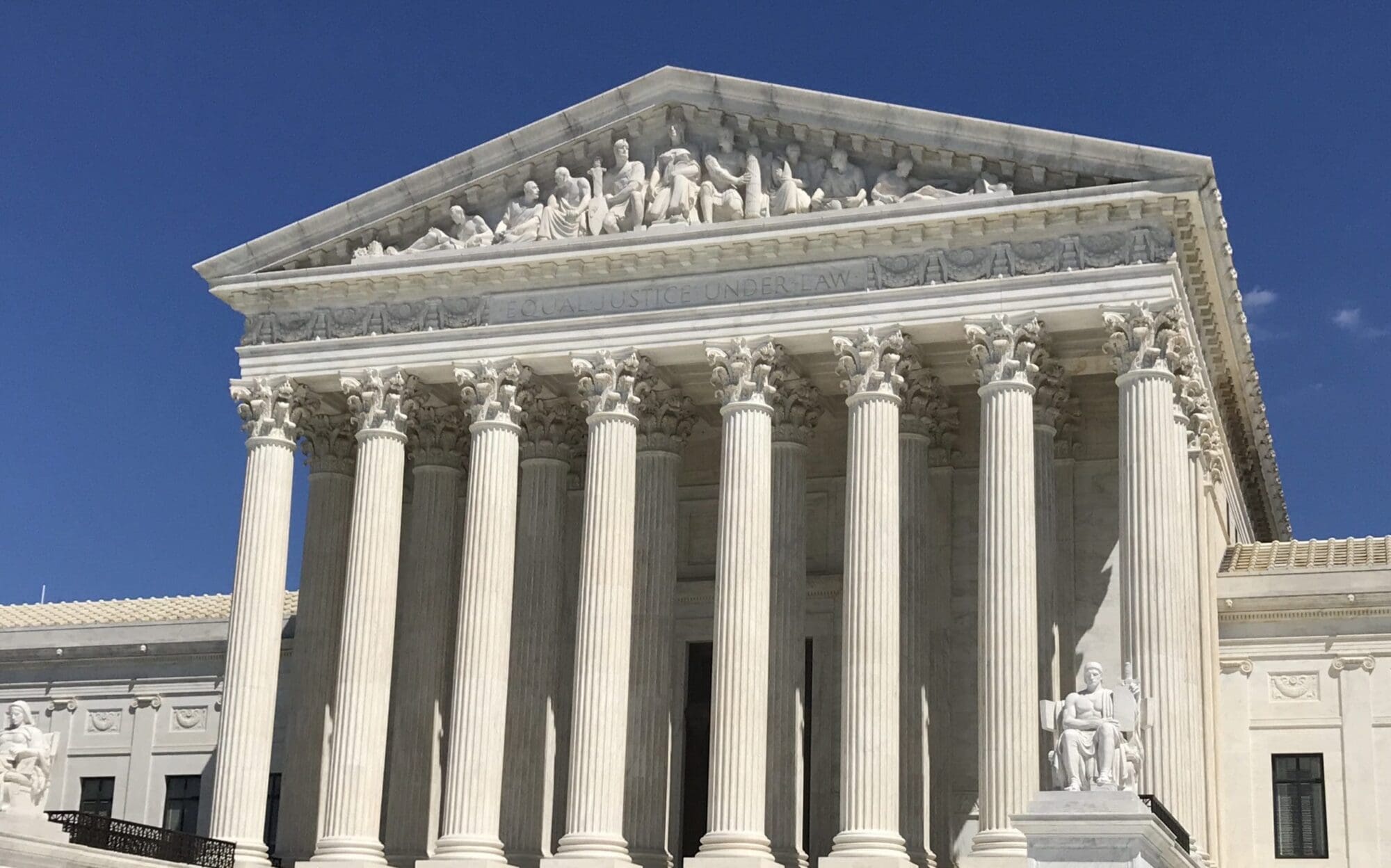Chinese are under threat in Texas. China’s repressive surveillance arm stretches into the Lone Star State, threatening Texans and Chinese alike.
Nearly all Texans are aware of the crisis that has been unfolding at the southern border for the past several years. An avenue for dangerous criminals, deadly drugs, and human trafficking, this invasion poses a national security threat to Americans. Little has been done to effectively stop it at the federal level. Only recently have state public servants started increasing efforts toward securing the border.
Fewer Texans, however, are aware of another dangerous, but better disguised crisis. Namely the infiltrations of the CCP into critical areas of American, and Texan, life. These infiltrations go even deeper than was previously thought.
Many do not see the unique threat China poses to U.S. interests and citizens. While other countries have amicable relations due to a similarity in cultural values and ideology, the values of the Chinese Communist Party are opposed to classical Western principles. As such, Americans must be wary of initiatives that give the CCP a foothold in American life.
The threat here is not the Chinese people, but rather the Chinese government, and the CCP specifically. Unlike other foreign governments, the Chinese government follows its citizens everywhere—even in the “free” United States.
In part one of this series, Texas Scorecard exposed the current state of CCP infiltration into the Texas education system at every level. This article examines how the CCP spies on Chinese living in the United States.
Chinese Police Stations in America
One can find several stories from the Cold War where individuals escaped the Soviet Union. These individuals came to America and found freedom, safety, and peace.
Today, reaching America alone doesn’t mean you are safe from the reach of tyrannical governments.
One of the methods the CCP employs to monitor and track Chinese nationals living abroad is through a network of overseas police stations. As reported by Safeguard Defenders, Chinese nationals believed to have committed fraud are “approached” and “‘persuaded to return’ to face criminal proceedings in China.” The Chinese Ministry of Public Security boasted that,
“The number of cross-border telecom fraud cases targeting Chinese residents has been significantly decreased in China, with 230,000 telecom fraud suspects being educated and persuaded to return to China from overseas to confess crimes from April 2021 to July 2022… The punishment measures include revoking the suspects’ household registration and putting their names on a black list for dishonesty, which means the suspension of bank cards and mobile phone cards for five years.”
In 2022, the Fuzhou Public Security Bureau “opened its ‘first batch’ of 30 overseas police service stations in 25 cities in 21 countries. The combination of the overseas stations, and an online platform used for services such as receiving reporting, is together called ‘110 Overseas.’”

The threat of CCP police stations in America is real.
Although these stations are purported to provide administrative support for Chinese citizens while abroad, they “also serve a more sinister goal as they contribute to ‘resolutely cracking down on all kinds of illegal and criminal activities involving overseas Chinese.’” Contrary to the claims of the CCP, Safeguard Defenders states most of these suspects were not criminals, but rather “dissidents or individuals that had fled religious and/or ethnic persecution.” These police initiatives to coerce and repatriate Chinese nationals living abroad are part of a larger operation known as Operation Fox Hunt.
Philip Lenczycki of the Daily Caller News Foundation has done extensive reporting on CCP infiltration in the United States, especially when it comes to these overseas police stations. According to his reporting, the federal government raided the offices of an alleged Chinese overseas police station in Manhattan, New York in 2022. In October of the same year, the U.S. Department of Justice indicted seven Chinese nationals for “participating in a scheme to cause the forced repatriation of a PRC national residing in the United States.” According to the FBI, “The victims in this case sought to flee an authoritarian government, leaving behind their lives and family, for a better life here. That same government sent agents to the United States to harass, threaten, and forcibly return them to the People’s Republic of China.”
Is Texas Turning into Beijing?
These events in New York are shocking enough. Any kind of transnational surveillance and repression of Chinese Americans by agents working on behalf of the Chinese Communist Party presents a gaping hole in American national security.
Such events have happened in Texas too. Bob Fu, the founder and president of China Aid, an international Christian human rights organization, sought refuge in the United States with his family after they were persecuted in China for their Christian faith. His organization serves to advance the cause of religious freedom and human rights in Communist China.

Source: Bob Fu
In the 2023 state legislative session, Fu and other Chinese dissidents traveled to the Texas Capitol in Austin to testify in favor of Senate Bill 147. The proposed law from State Sen. Lois Kolkhorst (R–Brenham) would have barred citizens of Russia, China, Iran, and North Korea—or companies headquartered or with a majority ownership interest in one of those countries—from owning land in the state of Texas. This bill follows on the heels of the Lone Star Infrastructure Protection Act passed in 2021 which was supposed to prohibit companies owned or controlled by citizens or other entities in the aforementioned countries from making agreements pertaining to critical infrastructure in the state of Texas. It, reportedly, has proven inadequate to address the CCP threat. SB 147 was killed by the Republican-controlled Texas House during the 2023 regular session.
An investigative report obtained from the Texas Department of Public Safety revealed that threats were made against Fu and others intending to testify in favor of the bill on the Chinese social media platform, WeChat. Fu told Texas Scorecard that he announced his intention to testify on WeChat, and was met by violent threats. Aside from threats to create a public disturbance at the capitol during the testimony, Fu recounts that they threatened “to physically… beat up and… harass and intimidate” him and another supporter giving testimony. According to him, YouTube videos were uploaded teaching viewers how to make a weapon out of a baseball bat and nails.
Fu contends that “very clearly it was [the] CCP or their [embassy]… [was] organizing a major campaign [of] disinformation propaganda and their goal is to kill this bill.” He reflected on his family’s experience of being tortured and imprisoned in Communist China for their faith, only to come to the United States and realize that the CCP’s arms have a much longer reach: “Now they’re in the US soil. They’re beating up people, dissidents on the streets of New York, San Francisco, and Toronto.”
Kolkhorst commented on the matter. “Unlike China, anyone is welcome to offer testimony in the Texas Legislature, and the CCP clearly took advantage of that openness when I filed this legislation,” she told Texas Scorecard. “The sophisticated foreign influence we saw during the debate over SB 147 is happening in other places like Florida as well.”
This wasn’t Bob Fu’s first encounter with CCP repression on U.S. soil. In 2020, he found his home was surrounded by over 100 Chinese agents protesting him and calling for “the elimination of Bob Fu.” He and his family had to be relocated by the FBI for their safety. Just last month a Chinese man “was secretly videotaping [him] and two other Chinese dissidents” in the Dallas-Fort Worth airport.
The fact that CCP agents have been allowed to enter and operate freely in the United States is shocking. Considering the open border, it is not surprising.
Many opponents to SB 147 labeled it discriminatory or hateful against the Chinese-American community, comparing it to the past legislative exclusion of Chinese-Americans or the imprisonment of Japanese in internment camps. Bob Fu disagrees:
“This is not about so called Asian hate as the CCP propaganda tried to portray[,] this is not about racial prejudice or discrimination, it is all about the CCP [as] a threat against our freedom, … essentially it’s all about whether we allow another communist country to set up their permanent bases in our own land [and] soil.”
Fu continues:
“[Do] you want to turn Texas into Beijing? I mean, that’s a choice right now… I think it’s time… to take this as a real bipartisan issue, because no matter the US politics… we still… believe freedom is essential. And… if… this freedom is threatened by the CCP, then we have no time to regret and no way actually to repair, and no return to this exceptionalist country. Many persecuted still look [to] America as the beacon of freedom, and they express to me in public and private: ‘where else we could go if U.S. falls?’”
Fu argues that increasing connections with Communist China will not increase cultural diversity. It will metastasize a clear and present danger to American national security.
“[W]e are a melting pot, but we can’t melt into the CCP’s propaganda,” he told Texas Scorecard. “When you allow… the CCP’s agents, basically, surrounding a fellow… Chinese American citizen’s house threatening our life because of what we do against communism… advocat[ing] for religious freedom, support[ing] the victims… where else can we go?”
The Expanding CCP Surveillance State
The CCP has made inroads in exporting its tactics of repression and persecution beyond its borders through a new network of overseas police stations. Although this police network is reportedly still limited, the CCP has also been proliferating a new kind of center around the world: “Overseas Chinese Service Centers” (OCSC).
According to Chinese state media, these centers are “a non-governmental non-profit service organization for overseas Chinese self-run by overseas Chinese, based on the Chinese community, for all overseas Chinese, with the participation of all parties, operation in accordance with the law, and supported by the government” [translated by Google].
These overseas centers fall under the purview of the Chinese government, specifically, the United Front Work Department. Previously, the United Front Work Department and the Overseas Chinese Affairs Office of the State Council were separate government branches. In 2018 they were merged. According to Chinese media, these overseas groups serve “as a bridge between the party and the government” to reach Chinese nationals living overseas.
In France, such assistance centers are connected to a contact point in Ouhai, China, and conduct legal proceedings and other “telejudicial” activities virtually. In China, this is portrayed as a “complete judicial convenience service network for overseas Chinese.” But such transnational relationships should give wary citizens pause.
Chinese state media admits that this program “further close[s] the relations between police and overseas Chinese, promote[s] the interaction and exchange of police and overseas Chinese, realize[s] the linkage and sharing of information at home and abroad, and promote[s] the construction of a safe and harmonious society.” In short, this program lengthens the policing arm of the Chinese Communist Party to reach Chinese people abroad, no matter where they may be.
These service centers have also made their way to the United States. The Daily Caller reportedly uncovered such centers in seven U.S. cities: San Francisco, Omaha, St. Paul, Salt Lake City, St. Louis, Charlotte, and Houston. These centers have not been connected to the aforementioned overseas police stations, but according to The Daily Caller, “U.S.-based OCSC representatives met with officials from China’s Ministry of Public Security.” Representatives from all seven centers in the U.S. reportedly traveled to Zhejiang, China, and visited the police station there in 2017.
The Houston Center appears to be located within the Chinese Civic Center. According to Chinese news, “Qiu Yuanping, director of the Overseas Chinese Affairs Office of the State Council, inaugurated the second batch of 12 ‘Chinese Aid Centers’ including the Chinese Activity Center in Houston” in 2015 [translated by Google Translate]. Another Chinese source corroborates the fact that the Chinese Civic Center hosts the Houston OCSC since it provides the civic center’s web address.
In 2014, the Chinese Civic Center celebrated the 65th anniversary of Communist China, with prominent figures like Li Qiangmin, then-Consul General of China in Houston; U.S. Rep. (and current Houston Mayoral Candidate) Sheila Jackson-Lee (D–TX); U.S. Rep. Al Green (D–TX); State Rep. Gene Wu (D–Houston)–and others in attendance. In his speech, the Consul General said: “We are confident to continue to follow the road of socialism with Chinese characteristics, move towards the goal of ‘two hundred years,’ and finally realize the Chinese dream of the great rejuvenation of the Chinese nation.” He also presented some Texans with awards for being “Outstanding Friends of China.” Among the recipients were John Rudley, then-President of Texas Southern University, and Juliet Stipeche, then-Chairman of the Board of Directors for the Houston Independent School District. Ten Chinese American high school students also received scholarships.
Much of the activities of this Chinese Civic Center and how it relates to the OCSC it appears to host is still shrouded in mystery. Questions about the threat these service centers may pose to American and Texan interests are growing. As recently as July of 2023, several U.S. senators sent a letter to the Department of Justice demanding more information about these centers and their activities.
There is still another channel for such surveillance and repression—one located on many college campuses which operate with little to no oversight.
The New Frontier: Chinese Students and Scholars Associations
Many U.S. colleges and universities have clubs called Chinese Students and Scholars Associations (CSSAs). Although these clubs may appear to facilitate social and cultural events for Chinese students or those wishing to learn more about Chinese culture—and perhaps some clubs do engage in these activities—they also pose a security risk to students and their host institutions.
The Chinese Students and Scholars Association was created by the Communist Party of China in the 1970s, “to monitor Chinese students and mobilize them against views that dissent from the CCP’s stance.” According to the U.S. State Department, CSSAs are under the supervision of the United Front Work Department and have often used their members to advance the political ideology of the CCP on U.S. soil. There are about 150 CSSA chapters at various colleges and universities across the country. They have no central organizational structure, but they have proven effective at accomplishing the CCP’s goals. In fact, “[a] former Chinese Ministry of State Security official, Li Fengzhi, who later defected to the United States, said that the Chinese government views CSSAs as a means to conduct ‘information collection’ and propaganda.’”
As noted in a Hoover Institution report,
“the ‘united front’ influence bureaucracy in the PRC considers the whole worldwide Chinese diaspora as ‘overseas compatriots,’ huaqiao tongbaomen (侨同胞们) owing a measure of loyalty to ‘the Chinese Motherland’… Consequently, the Communist authorities treat people of Chinese ethnic origin as a special priority in the PRC’s global influence-seeking activities.”
For many freedom-loving Chinese people who fled China for a better life in the United States but still have family in the country, the situation can be especially dire. If Chinese citizens who seek haven in the United States happen to speak critically of the CCP, the consequences can be increasingly dangerous.
Although many have flown under the radar, there have been some instances where the CCP’s repressive tactics via these CSSAs have drawn attention.
Cautionary Tales
Stories abound of students who speak out against Chinese repression and whose parents receive visits in China from the Ministry of State Security (MSS).
Zhihao Kong, a student at Purdue University, planned to speak about the massacre that took place in Tiananmen Square in 1989, but after his parents received a visit from the MSS, they told him: “They told us to make you stop or we are all in trouble.” He was also openly persecuted by members of the Purdue CSSA in a group chat, who threatened to report him to the MSS. Kong “realized it didn’t matter where he was. The Chinese government was still watching, and it was still in charge.” He never gave the speech. Both he and his parents are likely prohibited from traveling to or from China, under penalty of imprisonment, or worse.
At Brandeis University, Chinese students interrupted a speaker’s presentation with heckling and profanities while she was trying to speak about the atrocities suffered by Uyghur minorities—her brother specifically—in Xinjiang, China. The university’s CSSA reportedly led the opposition against the panel discussion, and other students told the speaker, Rayhan Asat, that the disruptions were organized by CSSA members. The whole plot was planned on WeChat, the Chinese social media platform repeatedly used by the CCP for attacks on dissidents like Asat and Bob Fu.
Another dissident commented: “If there are more than three or four Chinese students in the same class, you are scared to talk. A Chinese student is seen in good favor by the Chinese government for reporting someone.” Many Chinese students try to ensure they are the only Chinese student in the class to prevent this from happening.
A student at St. John’s University has not seen his mother for nine years, because his involvement with a pro-democracy group would have put his entire family in danger.
Oftentimes, calls for wariness towards Chinese initiatives in the United States are labeled xenophobic or discriminatory. However, the threat isn’t the Chinese community; it is the Chinese government operations that infiltrate Chinese communities, programs, and organizations to promote their agenda. According to a report published by the Australian Strategic Policy Institute,
“Successful united front work wedges the party between ethnic Chinese communities and the societies they live in, expanding the party’s control of those communities’ channels for representation and mobilisation [sic]. Members of Chinese communities who want to participate in community activities may unwittingly become associated with united front groups. Combined with the party’s surveillance and censorship of the Chinese social media app WeChat, this has smothered independent Chinese media outlets and community groups.”
In June of 2021, President Joe Biden (D) revoked an executive order signed by his predecessor, Donald Trump (R) relating to the security threat posed by WeChat. This is another in a long list of dangerous actions taken by the federal government.
CSSAs in Texas
This threat is here.
There are numerous universities in the state of Texas with CSSAs: the University of Texas at Austin, Rice University, Texas State University, Texas A&M, University of Texas at Dallas, and the University of North Texas, just to name a few. Little to no information is publicly available about these associations. Despite some of them claiming to be non-profit organizations, when Texas Scorecard requested their tax identification number or publicly-available documentation of their non-profit status, none provided the documentation. The CSSA at UT Austin asked why Texas Scorecard requested the information but stopped responding after our reply.
However, Texas Scorecard was able to obtain a recent version of the Constitution for the CSSA at the University of North Texas (UNT), dated 2022. This document raises some concerns, especially given the history and connections of these associations with the CCP. This particular CSSA includes a “Propaganda Department,” the director of which is responsible for marketing, advertising, and managing the CSSA’s WeChat account. As previously discussed, WeChat is a Chinese social media platform owned by the multibillion-dollar Chinese corporation, Tencent. According to Business Insider, “Tencent is the biggest video game company in the world” and has a stake in numerous industries from films to video games. Both WeChat and Tencent have been weaponized by the CCP in the past. Tencent was one of the companies that partnered with the government to crack down on free speech in 2020. Soon, the Chinese government may own one percent shares of Tencent, which would give the CCP voting rights on company decisions.
More notably, this CSSA Constitution prescribes that any funds remaining in the possession of the CSSA, if the organization is dissolved, would be donated to the Chinese Embassy. Although the extent of these associations’ active ties to the CCP remains unknown, this indicates that such a tie does exist.
Associations at other universities across the country, like Georgetown University in Washington D.C., have more overt connections to the CCP. Foreign Policy reported that the group “accepted funding from the Chinese government amounting to roughly half its total annual budget.” In 2011, this CSSA reportedly received $800 each semester from the Chinese Embassy. When asked about their connection to the CSSA by Foreign Policy, the Chinese Embassy admitted that “in order to organize [their] activities, [the CSSA] need[s] to raise funds from the public, such as their host universities, companies, organizations and the Chinese embassy.”
Texas Scorecard contacted state education chairs Rep. John Kuempel (R–Seguin) and Sen. Brandon Creighton (R–Conroe) for comment on these CSSAs. No response was received before publication.
Defensive Measures
Despite these repressive activities conducted by agents of a communist regime halfway around the world on U.S. soil, many universities do nothing to stop them.
Many choose not to be vigilant about such infiltration for fear of being seen as discriminatory. Consequently, the Chinese government largely has free rein to monitor and oppress its citizens from afar. According to one target of CCP espionage, “[p]ro-regime forces are skilled at exploiting the U.S. emphasis on political correctness, trying to persuade academic communities that criticism of authoritarianism in China equates to anti-Chinese bias.” Prioritizing political correctness harms both Texans and Chinese students who came to the United States seeking refuge from CCP oppression.
Fear of being seen as discriminatory isn’t the only reason universities may have been too silent. As the saying goes, money talks. According to a ProPublica report,
“university administrators are not always eager to intercede because it means risking a lucrative financial stream. U.S. universities have received more than $1 billion in donations from mainland China — from individuals, companies, government organizations — since 2013, according to the Department of Education. That doesn’t include tuition paid by Chinese students, whose numbers in the U.S. reached 370,000 in 2019.”
The target of the incident at Brandeis University concurred: “U.S. universities… are self-censoring themselves in order to recruit Chinese students for economic benefit.” An intelligence official agreed, saying, “I used to think universities were victims… But now I think those that take money from China and don’t protect their students from [CCP] harassment may be complicit.”
J. Kyle Bass, CEO of Hayman Capital Management and a founding member of the Committee on Present Danger: China, told Texas Scorecard:
“Universities are fully corrupted by the Chinese… excising these kinds of United Front groups and surveillance groups from both public and private universities in the US is going to require brute force, because you’re not going to get universities volunteering to do this and basically, break their financial relationship with the Chinese Communist Party.”
U.S. Sen. Marco Rubio (R–FL) asked China Human Rights Watch Director Sophie Richardson about the existence of any university efforts, saying: “We don’t care if you’re going to deny us trips and access to the marketplace or even to students or to exchanges or the ability to have campuses in the mainland; we are not going to allow you to pressure and undermine academic freedom[.]” Richardson replied: “[T]here’s enormous interest in having some sort of set of principles or code of conduct, but I think there’s also a recognition of how difficult it would be to get institutions to sign on to that for fears about loss of funding or the desires of fund-raisers or administrators versus the interests of faculty.”
China doesn’t shy away from making its imprint on American education or from surveilling Americans and Chinese nationals on American soil. But the vision of the CCP is much bigger than that.
In part three, Texas Scorecard will examine the CCP’s recent activities in the political realm, specifically how it molds American government policy to serve its interests, and uses Americans to do it.





